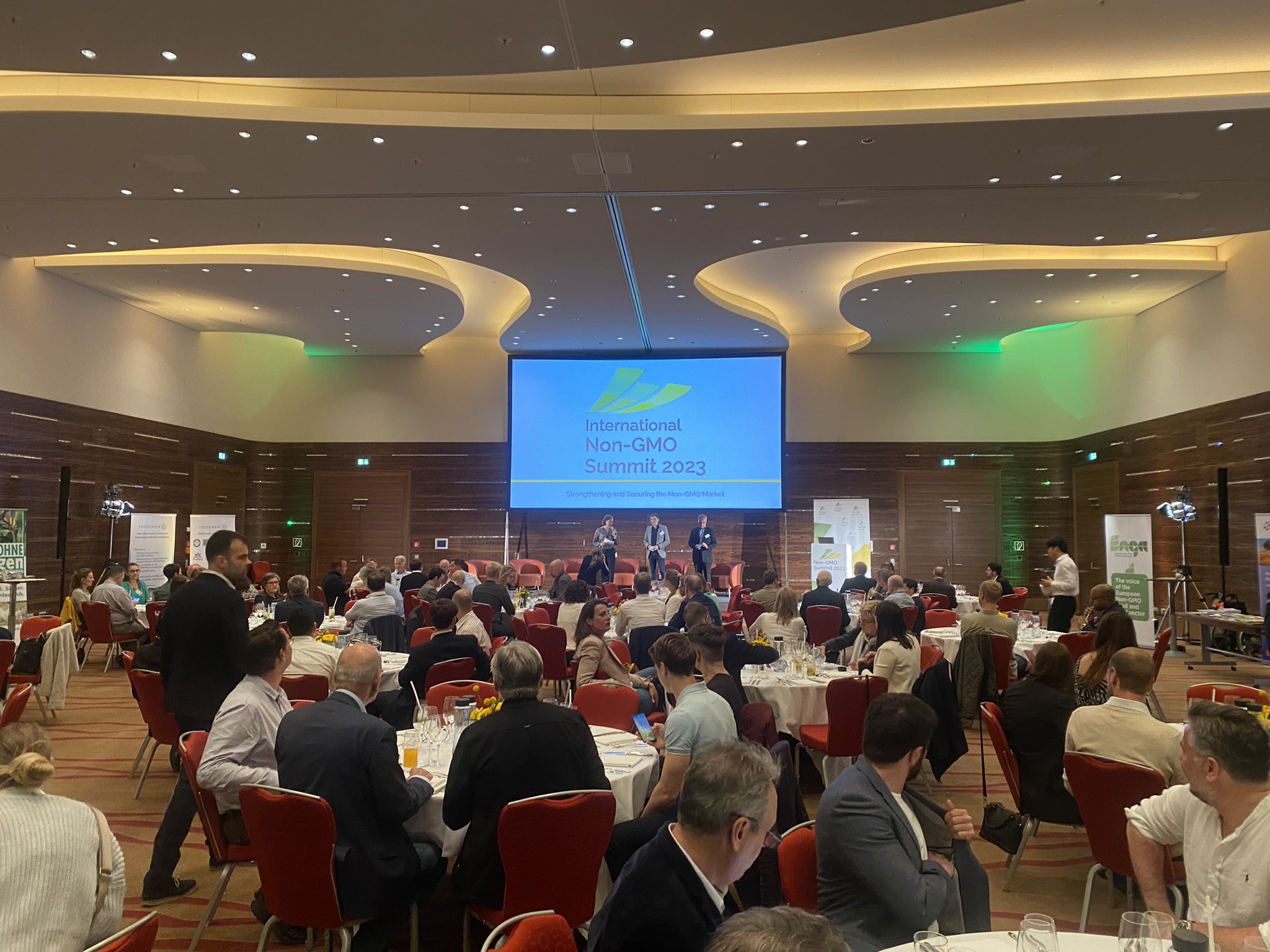International Non-GMO Summit focuses on ensuring non-GMO and deforestation-free supplies

Published: May 27, 2023
Category: Non-GMO News
GMO-free requires dialogue and cooperation along the entire value chain
Consumers want food that is produced without genetic engineering and deforestation. There is sufficient non-GMO, deforestation-free feed (made from non-GMO soy) available for the European market, but equitable supply relationships and long-term contracts are necessary to ensure the supply security. These were the key conclusions from the International Non-GMO Summit, which took place in Frankfurt on May 10.
The approximately 200 industry representatives from 19 countries and four continents—from soy cultivation to processing to food retailing—jointly declared their support for non-GMO and deforestation-free food.
In her welcome address, State Secretary Silvia Bender from the German Federal Ministry of Food and Agriculture emphasized the importance of freedom of choice and transparency, which is only made possible by labels such as “Ohne Gentechnik” (German Non-GMO label). She was impressed by the international gathering of experts from the entire value chain, from Europe including Ukraine, from Brazil, as well as from Africa and the United States.
Taras Vysotskyi, First Deputy Minister of Agrarian Policy and Food of Ukraine, explained that his country continues to be a reliable producer and supplier of non-GMO soy, despite the war. He stated that within the Danube Soy Partnership Programmes framework, all EU rules are already complied with and deforestation-free is guaranteed.
Eduardo Sampaio Marques, Agricultural Attaché at the Brazilian Embassy in Berlin, explained Brazil’s importance in global supply chains. Through efficient agriculture, Brazil contributes significantly to long-term food security.
Both Vysotskyi and Marques affirmed that GMO- and deforestation-free soy from their countries would also be sufficiently available in the long term.
The conference has initiated a constructive dialogue among stakeholders from all sectors and levels, from seed production to food retail. Through strong collaboration key players plan on jointly refuting inaccurate claims, for example, about the alleged lack of availability of non-GMO feed, which repeatedly surfaced during 2022, after the start of the Ukraine war.
There was feedback that farmers should not pay for sustainability alone. Costs and added value must instead be distributed fairly throughout the entire chain. Improved certainty about future demand is also important for non-GMO cultivation. The continuous development of the non-GMO market, for example in the area of pork, is another central common concern.
The EU’s new regulation on deforestation-free supply chains, which will come into force in 2025, was also a core topic of the conference. Because of significant effort, joint certification of GMO- and deforestation-free soy is the most practical approach. The soy certified according to the standards of the co-organizers Donau Soja and ProTerra Foundation already meets (and surpasses) the EU’s new requirements.
Due to the positive feedback from the participants, the organizers are already considering a repeat of the International Non-GMO Summit next year. The conference was organized and coordinated by the most important trade associations of the non-GMO market: Verband Lebensmittel ohne Gentechnik (VLOG), ARGE Gentechnik-frei, Donau Soja, the European Non-GMO Industry Association (ENGA) and ProTerra Foundation. It took place on May 9th and 10th at the Hilton Frankfurt Airport, Germany, and was supported by Instituto Soja Livre, Caramuru, ADM, FoodChain ID, and other sponsors.
The program and further information on the International Non-GMO Summit 2023 can be found on the conference website https://www.nongmosummit.com.
Organic & Non-GMO Insights June 2023








